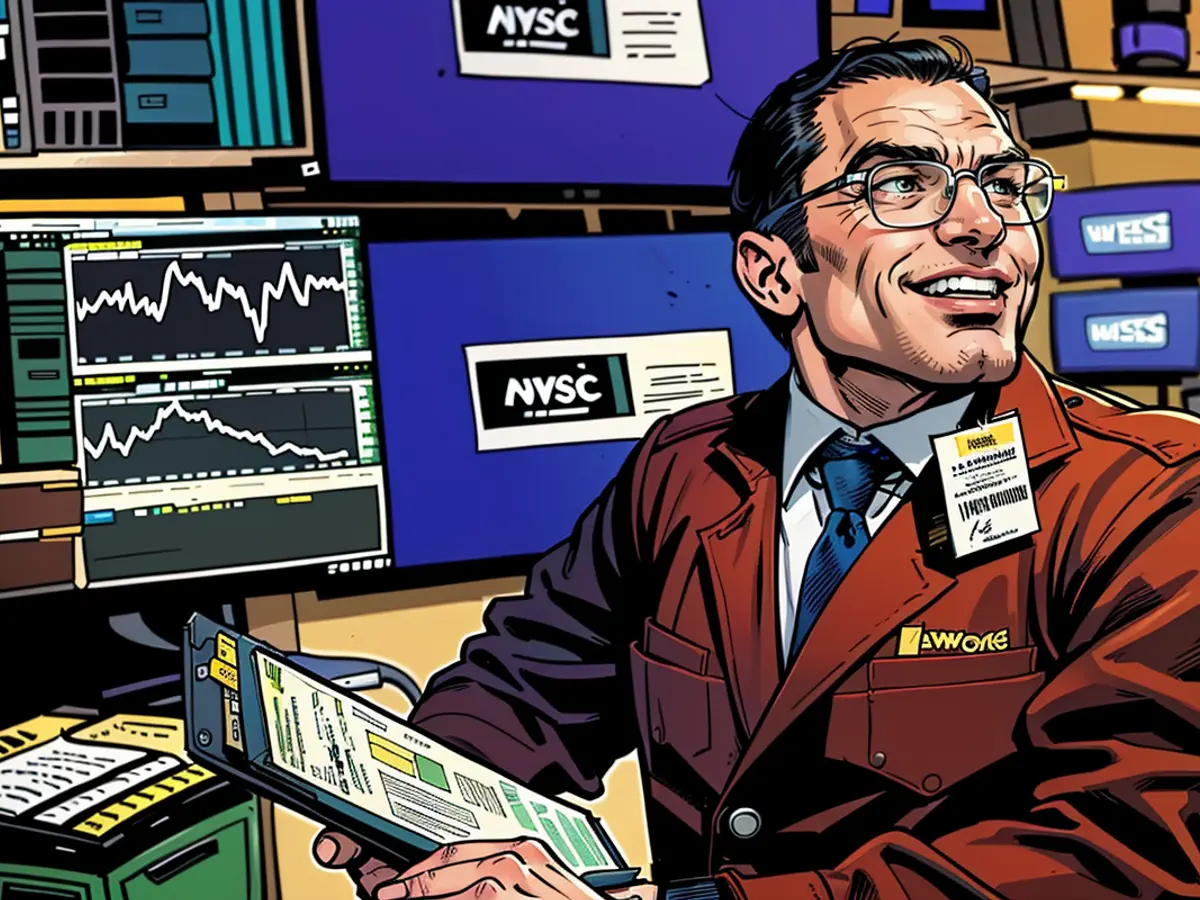Upcoming reduction in interest rates triggers significant surge in U.S. prices
In September, it appears, the moment has finally arrived for the US Federal Reserve to decrease interest rates for the first time in a considerable period. Fed Chair Powell suggested this in a speech, which triggered a positive reaction from Wall Street. The Dow Jones Industrial Average increased by 0.7%, reaching 41,004 points. The broader S&P 500 index advanced by 0.6%, settling at 5,607 points. The Nasdaq Composite index also climbed by 0.8%, reaching 17,771 points.
Recently, the Federal Reserve Chair Jerome Powell delivered a speech that sparked optimism among investors. The Dow Jones Industrial Average of blue-chip stocks recorded a 0.7% increase, touching 41,004 points. The broader S&P 500 index progressed by 0.6%, reaching 5,607 points. The Nasdaq Composite index also moved up by 0.8%, ending at 17,771 points.
The Federal Reserve is on the brink of implementing its initial interest rate reduction since the start of the decade. In a speech at the Federal Reserve's annual symposium in Jackson Hole, Powell gave financial markets the anticipated signal, indicating a probable rate reduction in September: "It is time to modify our monetary policy." He added that the course is clear, with rate reductions on the horizon. The specifics, however, will depend on incoming data, the outlook, and risk assessment.
"An essential indicator will be the August jobs report," noted Elmar Völker, interest rate expert at LBBW. "If it displays a more rapid improvement in the employment situation than the Fed currently anticipates, the majority of Fed officials might have held on to restrictive monetary policy for too long. In that scenario, monetary policy easing would need to intensify."
Other experts remained more cautious. Investors have been let down before regarding the timing of the rate reduction, said Sam Stovall, chief investment strategist at CFRA Research. "Unlike sprinters at the Olympics, the Fed won't burst out of the starting blocks with a 50 basis point cut."
Powell's speech elevated the gold price, with the precious metal reaching a new peak of $2,518.20 per ounce. Additionally, investors bought US Treasury bonds, lowering the yield on the 10-year bond to 3.818% from 3.845%. Meanwhile, the US Dollar Index decreased by 0.7% to 100.76 points, after previously hovering near the zero mark. The Euro, in turn, increased by 0.62% to $1.12.
Moreover, Bitcoin recovered from its previous day's losses, rising by 1.9% to $61,862. Jochen Stanzl, chief analyst at CMC Markets, commented: "The news flow is optimistic for Bitcoin, but the recovery isn't gaining momentum ahead of monetary policy decisions."
Tech firms' shares increase in value
The prospect of imminent monetary relaxation in the US benefited the shares of major technology companies. Stocks of giants like Apple and Alphabet each gained 0.4%. Lower interest rates make investments more cost-effective for technology companies, supporting their growth.
The shares of US human resources software provider Workday surged by 11.3 percent, fueled by a robust business report. The company reported a second-quarter profit of $1.75 per share, surpassing analyst expectations of $1.65. This surge was attributed to an increase in spending by companies on human resources and payroll products. Piper Sandler analysts commended Workday's comments on its international expansion, deals, partnerships, and advances in the field of artificial intelligence (AI).
The positive reaction from Wall Street following Fed Chair Powell's indications of interest rate reduction was also visible in the tech sector. Shares of major tech companies like Apple and Alphabet saw a 0.4% increase each due to the prospect of more cost-effective investments. Additionally, the shares of US human resources software provider Workday skyrocketed by 11.3%, with a strong business report and positive comments on international expansion and AI advancements.
The Federal Reserve's anticipated interest rate reduction might have significant implications for Wall Street's major tech firms, providing them with more affordable investment opportunities and potentially boosting their growth.








